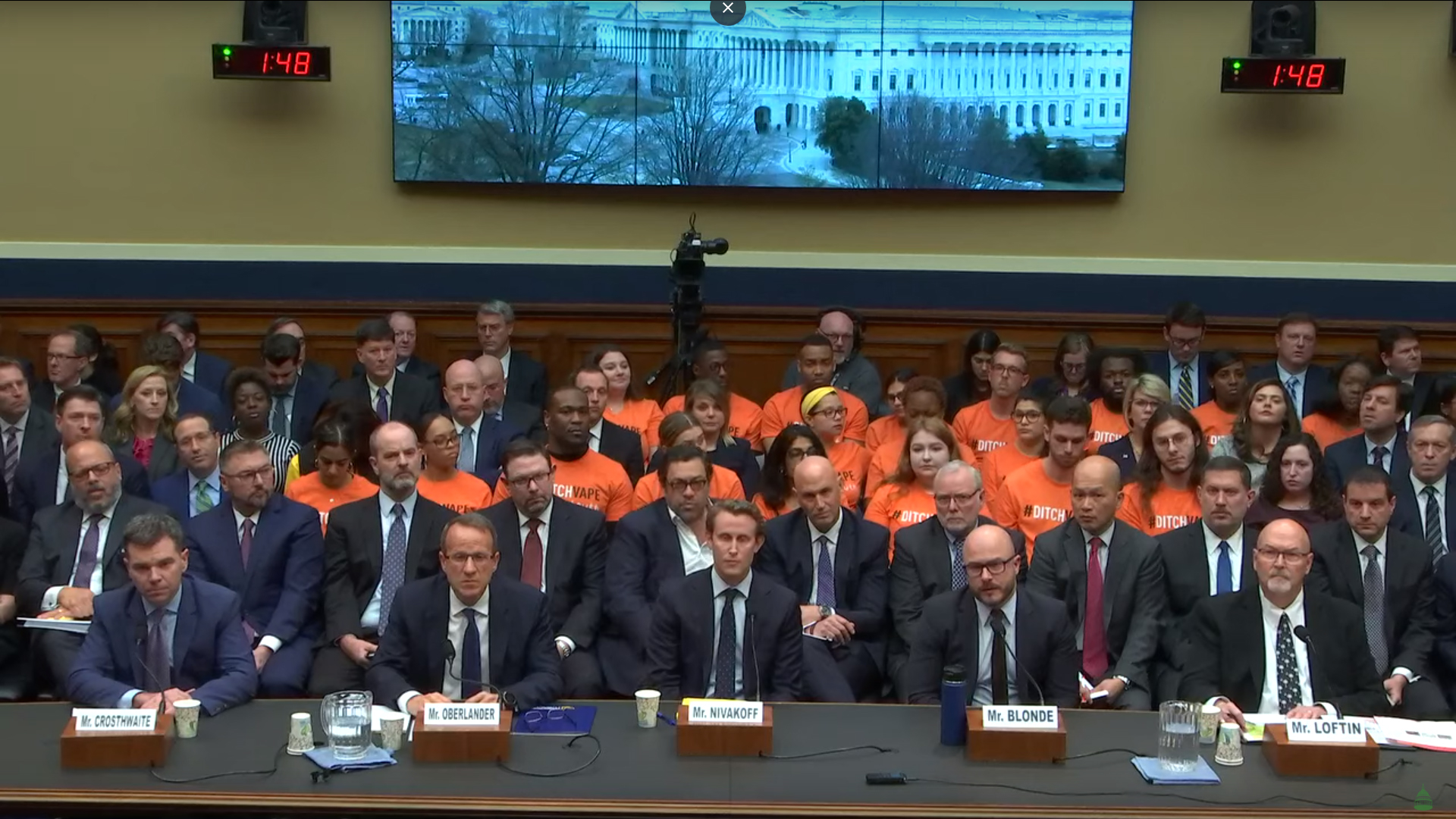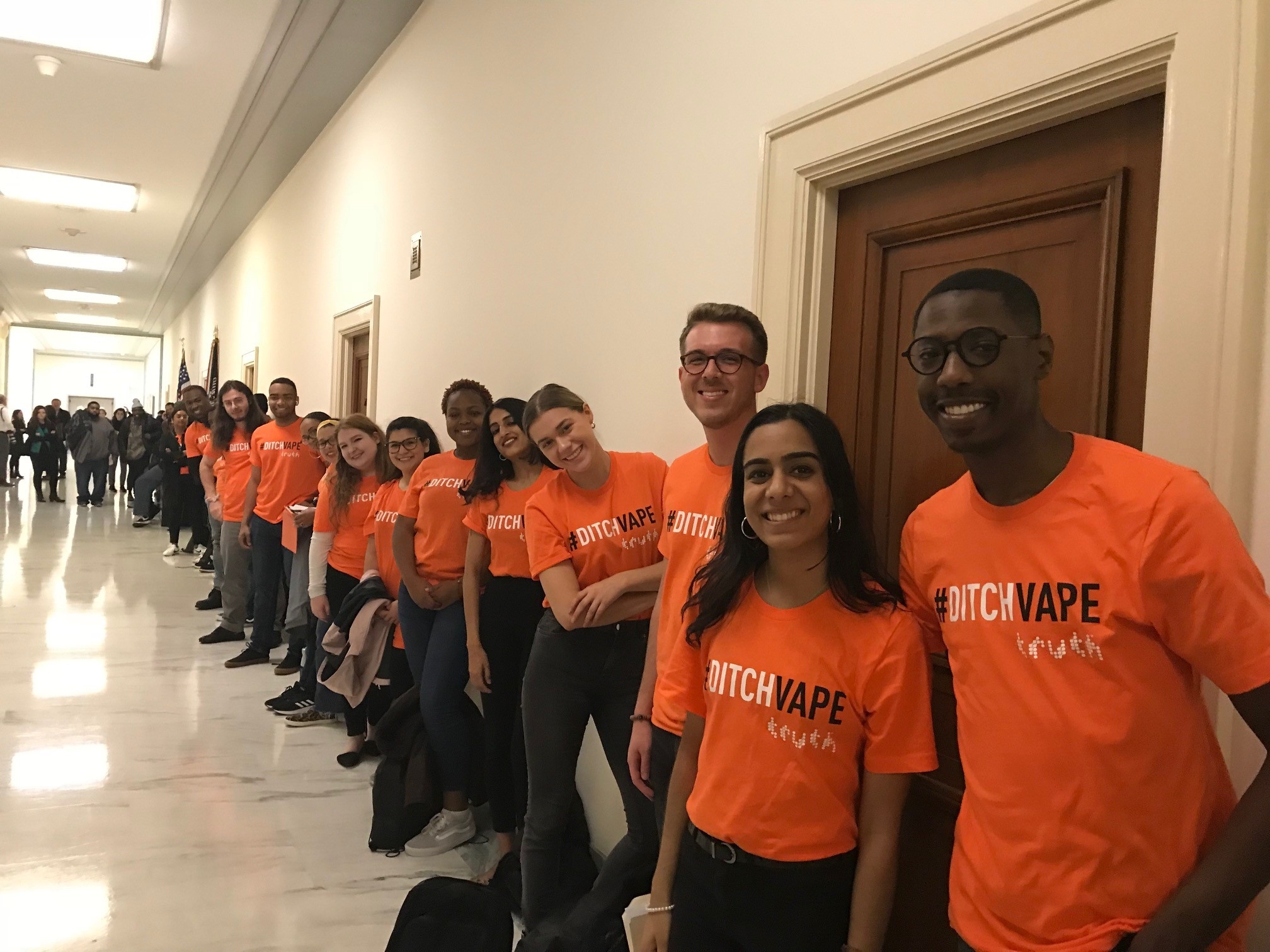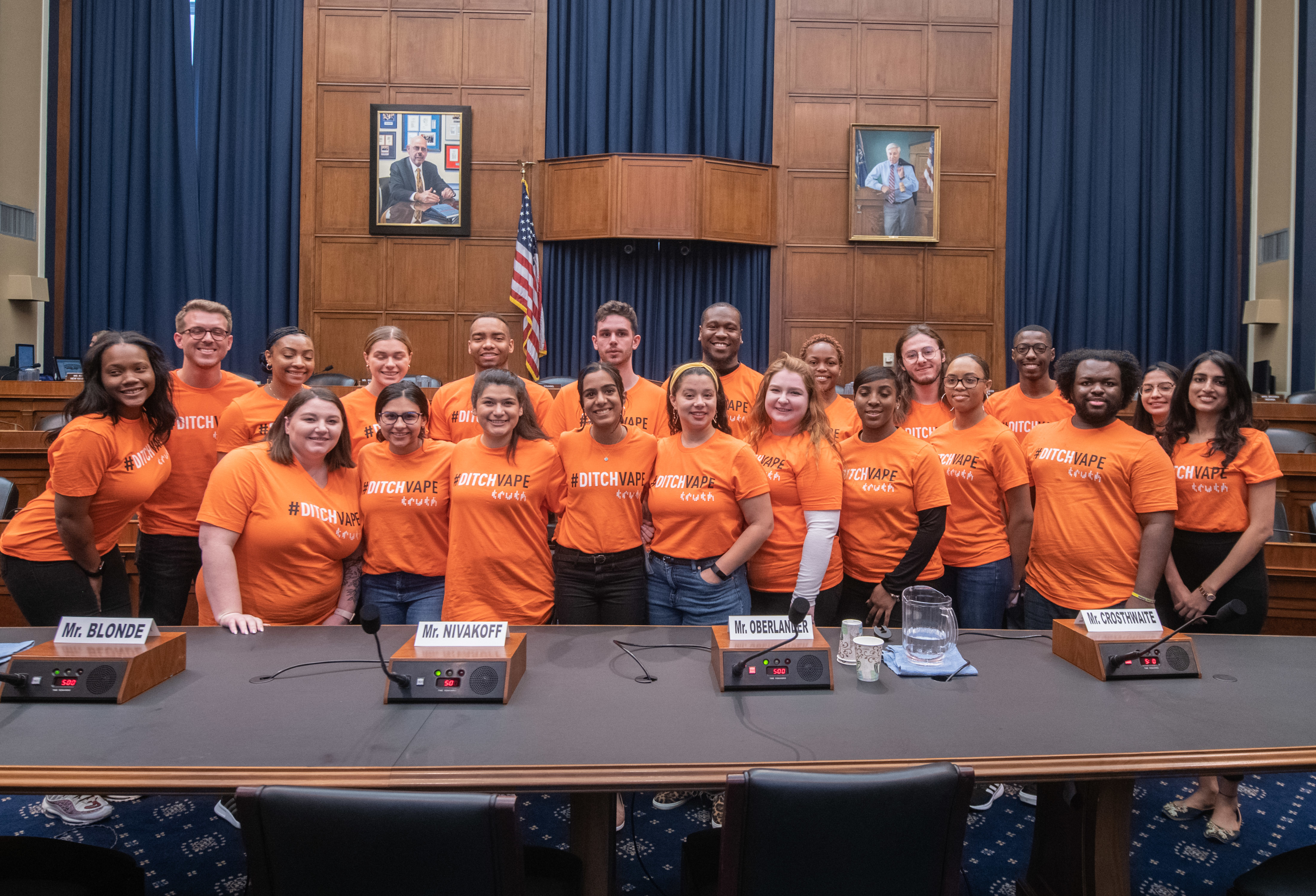E-cigarette CEOs admit under oath that they do not know all the harmful health effects of nicotine
Chief executives of major e-cigarette companies admitted, under oath, that their products can lead to nicotine addiction and that they do not know all of the harmful health effects of nicotine at a Congressional hearing on Feb. 5, a day before the Food and Drug Administration’s new flavored e-cigarette policy went into effect.
The House Committee on Energy and Commerce questioned the CEOs from JUUL, Logic, NJOY, Fontem Ventures (maker of blu) and Reynolds American (maker of Vuse) about marketing practices, flavored products and the role they’ve played in the youth e-cigarette epidemic. All five CEOs failed to take responsibility for their role in the crisis and admitted that that they do not know all of the harmful health effects of nicotine, a fact featured in a truth® campaign.
Wearing bright orange #DITCHVAPE shirts, more than 20 truth youth activists from around the country occupied a large section of the hearing room directly behind the CEOs as they testified. Following the hearing, they talked with reporters and visited Congress members’ offices to speak about the youth e-cigarette epidemic. The skyrocketing rates of youth e-cigarette use — the 2019 National Youth Tobacco Survey shows 27.5% of high schoolers currently use e-cigarettes — are driving an overall increase in tobacco use to levels unseen in nearly two decades.

E-cigarette companies continue to take pages straight from the Big Tobacco playbook and the hearing bore a striking resemblance to when tobacco executives testified before Congress two and a half decades ago. At that hearing, tobacco executives falsely stated under oath that nicotine is not addictive. While the e-cigarette executives acknowledged that nicotine is addictive, some would not say that it causes any harm when committee chair Rep. Diana DeGette asked. The science clearly shows that nicotine can harm brain development, alter nerve cell functioning, increase the risk of young people smoking cigarettes and change brain chemistry in ways that make adolescent brains more susceptible to other addictive drugs.
The truth presence at the hearing was just the latest youth activism effort surrounding e-cigarettes. truth activists also showed up in full force in July during two days of congressional hearings examining JUUL’s role in the youth e-cigarette epidemic, in which startling evidence of the company’s tactics to target young people came to light.

In October 2019, a protest outside JUUL’s Washington, D.C., office kicked off more than 200 events across the country with thousands of young people rallying for their peers to ditch JUUL and for the FDA to remove flavored e-cigarettes, including mint and menthol, and do its job of regulating the products. truth youth activists followed the protest by participating in a listening session at the White House and meeting with dozens of congressional offices.
As the youth e-cigarette epidemic continues to intensify, the FDA has still not fully regulated the products and a new policy on flavored e-cigarettes is rife with exemptions and loopholes. It allows menthol and other youth-appealing e-cigarette flavors to remain on the market, with menthol permitted in all forms and other sweet and candy like flavors, like cotton candy, allowed for sale in open systems as well as disposable products. Truth Initiative® continues to call on the government to clear the market of all flavored e-cigarettes and fully regulate the products.
More in emerging tobacco products
Want support quitting? Join EX Program
By clicking JOIN, you agree to the Terms, Text Message Terms and Privacy Policy.
Msg&Data rates may apply; msgs are automated.






